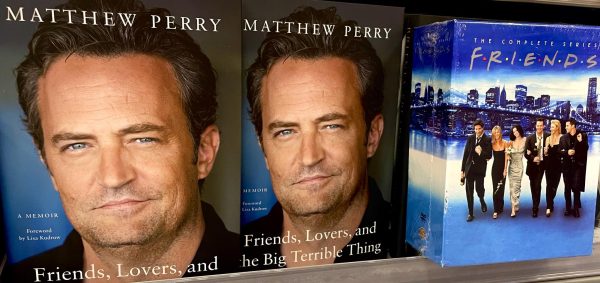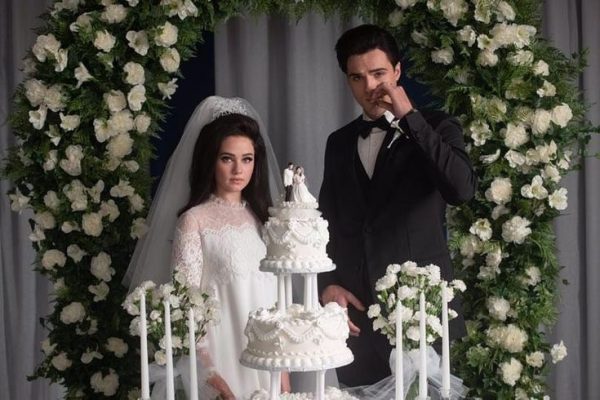Review: “Ant-Man and the Wasp: Quantamania”
*SPOILER WARNING*
Expanding on the threat introduced to us at the end of the fourth phase of the Marvel Cinematic Universe (MCU), “Ant-Man and the Wasp: Quantamania” provides fans with more insight on the newly established villain of the franchise and the future of the Multiverse Saga.
Taking place after the events of “Avengers: Endgame,” the film shows Scott Lang (Paul Rudd) living a successful life alongside Hope Pym (Evangeline Lilly) and the rest of their family, including his now adult daughter, Cassie Lang (Kathryn Newton), who has developed an interest in the study of quantum physics.
Unveiling an invention that she has been working on, Cassie inadvertently sends a beacon throughout the Quantum Realm, drawing unwanted attention from an exiled Kang the Conqueror (Jonathan Majors) and trapping them all in the subatomic universe.
Facing new and old threats, the heroes are left to deal with the greatest threat they have ever faced, with not only the fate of their universe at stake, but the fate of the multiverse.
Like other products that have been released within the past two or three years, “Ant-Man and the Wasp: Quantamania” serves as a tool for Marvel to further introduce new plots and characters into its cinematic universe.
“I personally felt the film was on par with recent Marvel films,” Elijah Cudak, junior, said. “It called on a cast of old characters while adding new characters and abilities to the MCU.”
A lighthearted beginning of Marvel’s newest phase of films, this addition to the Ant-Man film franchise incorporates many elements seen in previous movies, while providing a smooth transition into the Multiverse Saga.
“It gives the audience a proper introduction to the villain of this new Multiverse Saga and shows the transition from the Infinity Saga and Thanos, to this larger threat which would affect not just the main universe that we are unaccustomed to, but the new multiverse that was explored in ‘Spider-Man: No Way Home’ and ‘Doctor Strange into the Multiverse of Madness,’” Leonardo De Nadai, junior, said.
Throughout the course of Phase Four, the MCU established the multiverse to the audience, exploring its possibilities in both the movies and shows produced. The multiverse was expanded upon most prominently within the “Loki” series, where we were not only first introduced to the infinite parallel worlds and different dimensions, but also to the threat of Kang.
While this underlying menacing feeling is prevalent throughout the film, in a fashion similar to its previous films, it establishes the potential for a greater risk to the MCU while setting it aside for future projects.
“Scott stops to reflect on his victory over Kang and remembers Kang’s warning of a coming threat of the Kang Dynasty and how he was the only one who could defeat them,” De Nadai said. “This leads Scott to question if defeating Kang was a good decision, which I feel isn’t seen much in Marvel movies because Scott actually questions if by defeating Kang, he ended up dooming everyone to this coming threat…which can be seen in the mid-credit scene.”
Although the film helped to broaden the audience’s understanding of the multiverse within the MCU, the movie was received poorly, earning a rating of 47% on Rotten Tomatoes.
“Some people see the film’s introduction of the quantum-verse and a whole new host of characters as too much for the multi-dimensional and time traveling MCU,” Cudak said.
This poor rating is a trend that has been seen in other newer Marvel series and films.
“It follows a pattern that was seen with many of the sequels from Phase 4 such as ‘Doctor Strange in the Multiverse of Madness’ and ‘Thor: Love and Thunder,’ getting low reviews. I feel that this clearly shows the growing fatigue towards Marvel movies,” De Nadai said.
However, regardless of the low reviews, the film was still enjoyable to watch.
“Despite the complexity, the film was rather good. I especially enjoyed the mystical setting,” Cudak said. “I personally would change nothing, except maybe adding more Paul Rudd.”
Ultimately, “Ant-Man and the Wasp: Quantamania,” was an overall entertaining film. While there were some weaker points, with its overuse of CGI and underwhelming plot, its use of humor and emotion helps to make up for its underdeveloped elements, allowing it to beautifully bring together the Quantum Realm and multiverse and set up the next phase of the MCU.











